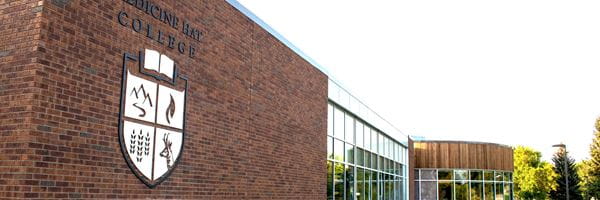Student Spotlight: Advocacy for Mental Health Support in Indigenous Populations
Social Work Program | Medicine Hat College (MHC)
As a student in MHC’s social work program, Alivia Rybchinski gained the courage to learn and speak about heavy topics.
While learning about the current issues affecting Indigenous communities, Alivia discovered the need for more mental health supports. Now, she has become an advocate for those who are struggling and believes that early-intervention could help enhance, and in some cases, save the lives of many Indigenous youth.
Before we dive into the student’s project, here’s a quick look at the Social Work program.
Geared towards compassionate individuals who want to make a difference in the lives of others, students in the two-year social work diploma are taught from a broad and inclusive perspective, exploring topics such as:
- Contemporary Indigenous issues in Canada
- Developmental psychology
- Mental health, trauma, and addictions
- Social problems and policies
With two practicum placements in social service agencies, students graduate with the knowledge, hands-on experience and confidence to help individuals, families, groups, and communities gain the skills and resources needed to enhance their quality of life.
An exploration of issues affecting Indigenous youth
In her Social Problems and Policies course, Alivia was given an assignment designed to deepen her understanding of the issues faced by Canada’s Indigenous peoples. The project encouraged a holistic view of aspects of Indigenous life that fosters empathy, critical thinking, and advocacy skills.
In her research, Alivia discovered a disturbing connection between mental health issues and the rate of suicide in Indigenous youth. She then explored current resources available in some communities that encourage early intervention and prevention.
She identified suicide has been widely identified as a more prevalent issue within Indigenous communities than non-Indigenous communities, with youth being a vulnerable group. Due to the negative effects of residential schools, intergenerational trauma continues to impact children in Indigenous communities across Canada.
“Suicide is not a joke. It is preventable and the lack of resources that our Indigenous communities have to work with is horrible. We need a change,” says Alivia. “I believe strongly in early intervention, and it was very interesting seeing it be incorporated within communities.”
Current approaches include the National Suicide Prevention Action Plan, established by the Government of Canada in 2024, and the National Inuit Suicide Prevention Strategy, which focus on a holistic approach to preventing suicide, with cultural-based intervention and development of coping skills.
What did she learn through this assignment?
“How prominent suicide truly is within Indigenous communities and how little it is spoken about considering the unbelievable statistics on the topic,” explains Alivia.
She says that by providing more access to mental health services and creating unique ways to adapt to people’s realistic needs will save lives.
“It is not easy to talk about something that is so heavy…but I felt it was important to spread awareness about this. In my future, I want to be able to talk about things that go unspoken, spread awareness, and break the stigma around keeping a silence on topics that need attention brought to them.”
How to help someone who is struggling
For those who are struggling with their mental health, Alivia provides the suicide crisis hotline number, 9-8-8, for a 24-hour safe place to talk.
Current students in need of support have access to a number of resources through the Mental Health & Counselling Office. Learn more about current student supports here.
interested in a career in

